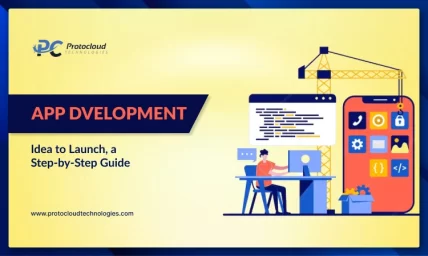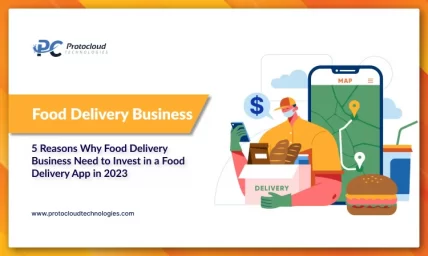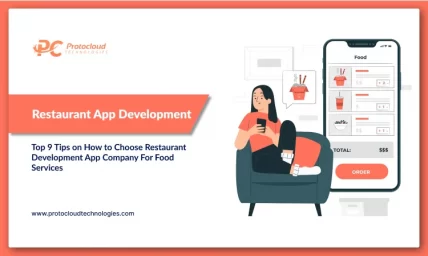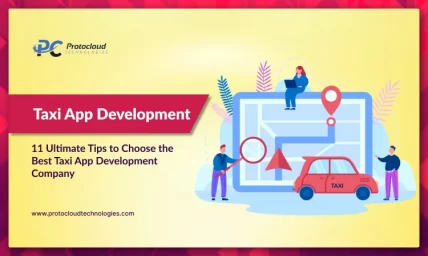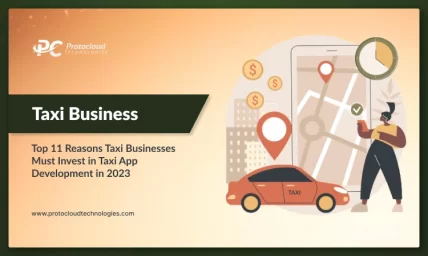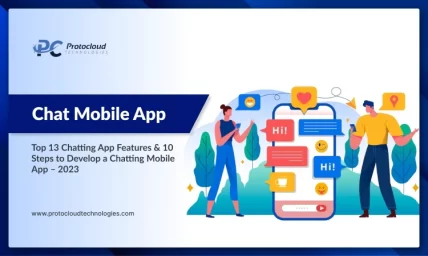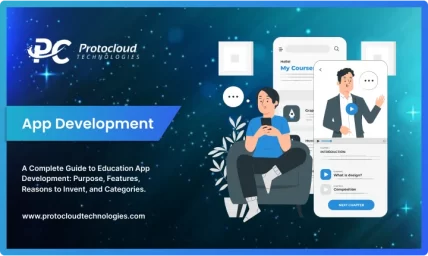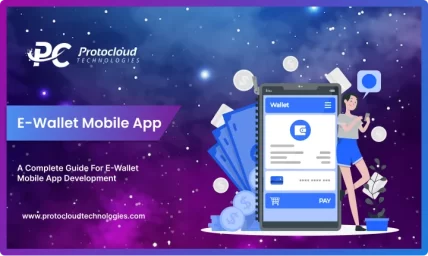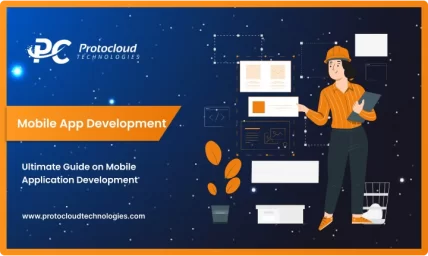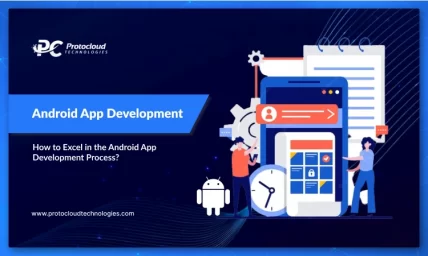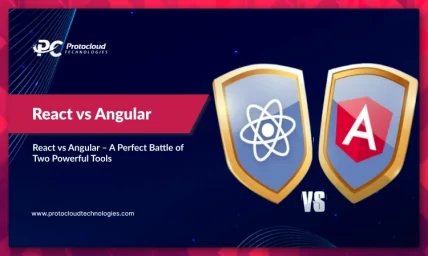1. Introduction to hybrid app development
Mobile app development has witnessed significant growth in recent years, with businesses and individuals leveraging smartphone applications’ power to reach and engage their target audience. Traditionally, developers had to choose between native and web app development, each with advantages and limitations. However, a new approach has emerged that combines the most suitable of both worlds: hybrid app development. In this Blog, we will explore why hybrid app dev is the future of mobile app development and how it offers a compelling solution for businesses seeking to build innovative and efficient mobile applications.Benefits of Hybrid App Development

1. Cost-effectiveness: One of the primary reasons why hybrid app development is gaining popularity is its cost-effectiveness. Unlike native app development, where separate code-bases are required for different platforms (such as iOS and Android), hybrid apps can be developed using a single codebase. This significantly reduces development costs and ensures quicker time-to-market.
TALK TO US AND GET YOUR PROJECT MOVING!
Get a Free Consultation with our expert and let us know your project idea to turn it into an amazing digital product.
2. Cross-platform compatibility: Hybrid apps are designed to run seamlessly on multiple platforms, including iOS, Android, and web browsers. This cross-platform compatibility allows businesses to reach a wider audience with their applications without investing in separate development teams or resources.
3. Faster development cycles: With hybrid app development, developers can leverage pre-built components and frameworks, accelerating development. Changes or updates can be deployed instantly across different platforms, eliminating the need for separate releases.
4. Enhanced user experience: Hybrid apps provide a native-like experience to users, offering smooth performance and access to device features such as cameras, GPS, and notifications. Advanced frameworks like React Native and Flutter enable developers to create highly responsive and interactive user interfaces, resulting in an engaging user experience.
5. Access to device features:
Unlike web apps, hybrid apps can leverage native device features through plugins and APIs. This allows developers to integrate features like geolocation, push notifications, and device hardware functionalities seamlessly, enhancing the application’s overall functionality.
Need an App Like Uber?
Want to know the exact cost? Want to get a free consultation from our experts?
Popular hybrid app development frameworks

1. React Native: Created by Facebook, React Native has become extremely popular among developers owing to its efficiency and ease of use. It enables developers to create mobile apps with JavaScript. It gives a robust collection of pre-built UI components, making development more efficient and simplified.
2. Flutter: Google’s Flutter is another strong hybrid app development platform recently gaining popularity. It operates on the Dart programming language and provides sophisticated widgets and tools for creating visually appealing, high-performance mobile apps.
3. Xamarin: A Microsoft-owned company, Xamarin allows developers to create cross-platform programs in C#. It provides native-like performance and seamless interaction with the device’s core functionality. Xamarin allows code to be shared across many platforms, which reduces development time and ensures consistent user experiences.
Comparison between hybrid and native app development

When deciding between hybrid and native app development, it’s essential to consider various factors. Let’s compare the two approaches:
1. Performance: Native apps are known for their superior performance as they are specifically built for a particular platform. However, with advancements in hybrid frameworks like React Native and Flutter, the performance gap has significantly narrowed, offering near-native performance for hybrid apps.
2. User experience: Native apps often provide a seamless and intuitive user experience, leveraging platform-specific design guidelines. While hybrid apps may not consistently achieve the same level of UI consistency, frameworks like React Native and Flutter enable developers to create visually appealing and user-friendly interfaces.
3. Development time and cost: development saves time and expense compared to developing separate native apps for different platforms. With a single codebase, developers can write once and deploy across multiple platforms, resulting in faster development cycles and cost efficiencies.
Want to Optimize/Customize your website or App?
Book a Free consultation call with our Expert!
4. Maintenance and updates: Maintaining and updating hybrid apps is generally easier than native apps. Developers can change the codebase and deploy updates across platforms simultaneously, reducing the need for separate releases and maintenance efforts.
Overcoming Challenges

While hybrid app development offers numerous benefits, there are specific challenges that developers may encounter. However, these challenges can be confounded with careful consideration and implementation:
1. Limited access to device APIs: Hybrid apps sometimes have limited access to device-specific APIs, which can restrict the implementation of certain functionalities. However, frameworks like React Native and Flutter provide robust plugins and community-driven packages to bridge this gap and enable access to various device features.
2. Performance optimization: Hybrid apps may face challenges when handling complex operations or graphics-intensive tasks. Developers can mitigate this by optimizing the codebase, implementing efficient algorithms, and leveraging platform-specific optimizations frameworks provide.
3. User interface consistency: Achieving consistent UI across different platforms can be challenging with hybrid app development. However, frameworks like React Native and Flutter offer UI components and design patterns that closely resemble native interfaces, helping developers maintain consistency across platforms.
Real-world examples of successful hybrid apps

1. Instagram: One of the most prevalent social media platforms, initially started as a native app but later migrated to React Native. This transition allowed Instagram to leverage the benefits of hybrid development while maintaining a seamless user experience across platforms.
2. Airbnb: Airbnb, a leading online marketplace for accommodations, adopted React Native for its mobile app development. The decision enabled Airbnb to streamline the development process, reduce costs, and provide a consistent user experience to both iOS and Android users.
3. Pinterest: A visual discovery platform, Pinterest also embraced hybrid app development using React Native. By doing so, Pinterest improved development efficiency, accelerated feature releases, and delivered a smooth user experience to millions of users
.
Future Trends in hybrid app development

Hybrid app development is an ever-evolving field, and several trends are shaping its future. As businesses and developers continue to explore new possibilities, here are some key trends to watch out for:
1. Progressive Web Apps (PWAs):
PWAs combine the benefits of web and native apps, providing an app-like experience through web browsers. Hybrid app development frameworks increasingly incorporate PWA support, allowing businesses to reach users across various devices and platforms.
Want SEO/Digital Marketing Services?
Want to increase traffic and boost sales? Book a Free consultation call with our Expert!
2. Increased usage of hybrid frameworks:
Hybrid frameworks, which are Flutter and React Native, is destined to achieve popularity. Developers know these frameworks are more valuable and more significant for efficiency and productivity, leading to increasing adaptiveness and community support.
3. Integrating AI and AR/VR technologies:
Hybrid apps will utilize forthcoming technologies such as artificial intelligence (AI) and augmented reality/virtual reality (AR/VR) to improve user experiences. Because of these technologies, businesses can give tailored and immersive app interactions.
4. Internet of Things (IoT) Integration:
As IoT devices grow, incorporating hybrid apps with IoT technology becomes increasingly essential. Hybrid apps can operate cross-platform features to seamlessly link and control IoT devices, enabling users to interact with their smart homes, wearables, and other instruments in real time. This ability enhances the overall user experience and convenience.
5. Blockchain Integration:
Blockchain technology provides safe, decentralized solutions for many businesses. it’s functions like smart contracts, and decentralized storage may be included in hybrid apps to improve application security, transparency, and trust. This trend will enable firms to create hybrid apps that use blockchain technology’s features.
6. AI and Machine Learning (ML):
artificial intelligence and machine learning transform how we engage with apps. AI and machine learning capabilities may be integrated into hybrid apps to provide tailored user experiences, intelligent suggestions, and predictive analytics. Hybrid apps may deliver essential insights and automate processes by combining AI and ML algorithms, increasing user engagement and pleasure.
7. Enhanced User Experiences (UI):
As user expectations increase, hybrid apps will prioritize providing outstanding user experiences. Frameworks like React Native and Flutter constantly evolve, allowing for more complex UI components, animations, and design patterns. As a result of this trend, developers will be able to design aesthetically appealing and engaging user interfaces that rival native app experiences.
8. Augmented Reality (AR) and Virtual Reality (VR):
These technologies are gaining traction in various areas, including gaming, retail, and education. AR and VR capabilities will increasingly be integrated into hybrid apps, allowing consumers to experience virtual worlds and interactive content via mobile devices. This trend delivers engaging and immersive user experiences while opening up new options for hybrid app development.
9. Progressive Web Apps (PWAs) Dominance:
Progressive Web Apps integrate the best features of web and mobile apps, offering fast and reliable experiences through web browsers. As PWAs continue to improve and gain wider acceptance, hybrid app development frameworks will focus on supporting PWA features, enabling businesses to reach users seamlessly across platforms.
10. Focus on App Security:
With the growing concern for data privacy and security, hybrid app developers will prioritize implementing robust security measures. This includes encryption, secure data storage, authentication mechanisms, and adherence to industry standards and regulations. App security will be crucial in maintaining user trust and safeguarding sensitive information.
11. Continued Framework Enhancements:
Hybrid app development frameworks like React Native and Flutter will continue to evolve and improve, offering enhanced performance, better native integrations, and more efficient development workflows. The developer community will contribute to the growth of these frameworks, providing a rich ecosystem of plugins, libraries, and tools to enhance hybrid app development further.

Conclusion
Hybrid app development presents a promising future for mobile app development, offering businesses a cost-effective, cross-platform solution with enhanced user experiences. The benefits of hybrid app development, such as cost-effectiveness, cross-platform compatibility, faster development cycles, and access to device features, make it an attractive choice for businesses seeking to build mobile applications.
Frameworks like React Native, Flutter, and Xamarin provide developers with powerful tools and pre-built components to streamline development. While native apps still hold advantages in performance and platform-specific user experiences, hybrid apps have made significant progress in closing the gap, offering near-native performance and intuitive interfaces.
Read this also –
Need help with Website Development?
Tell us about your project and get a free quote.
E-commerce Website Optimization: Best Practices for Increasing Conversions
Challenges faced during Building a Successful Food Delivery App
Looking to Create a Food Delivery App?
Curious about the exact cost? Get a free consultation from an expert!


